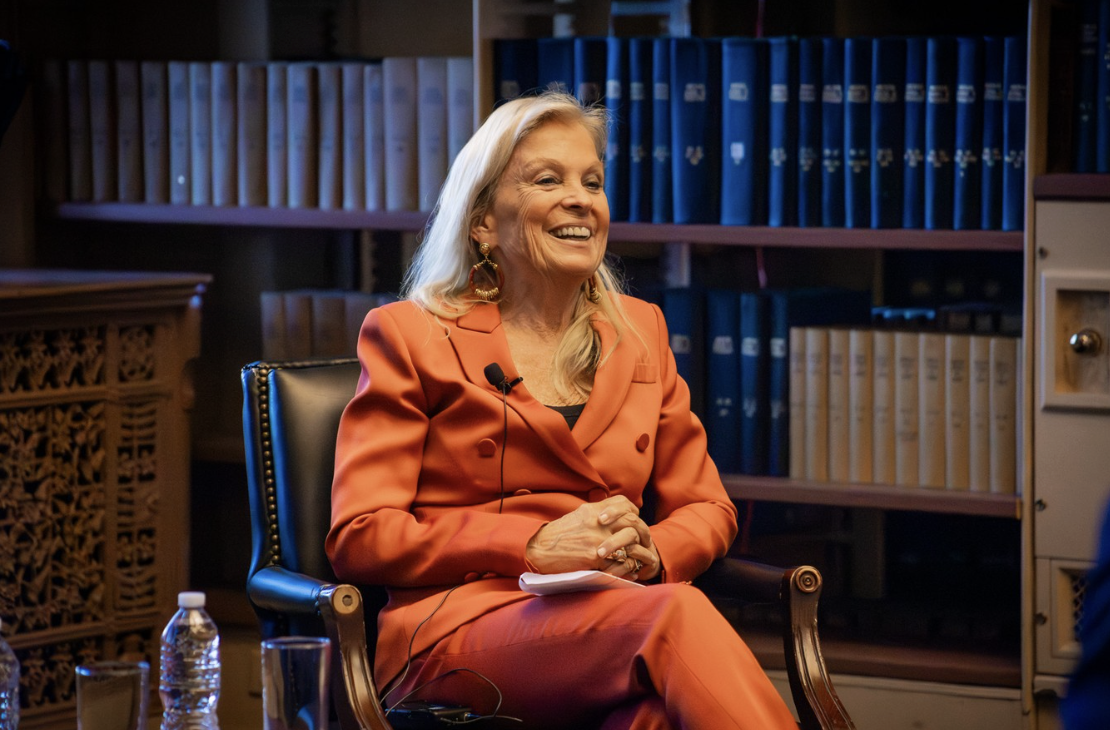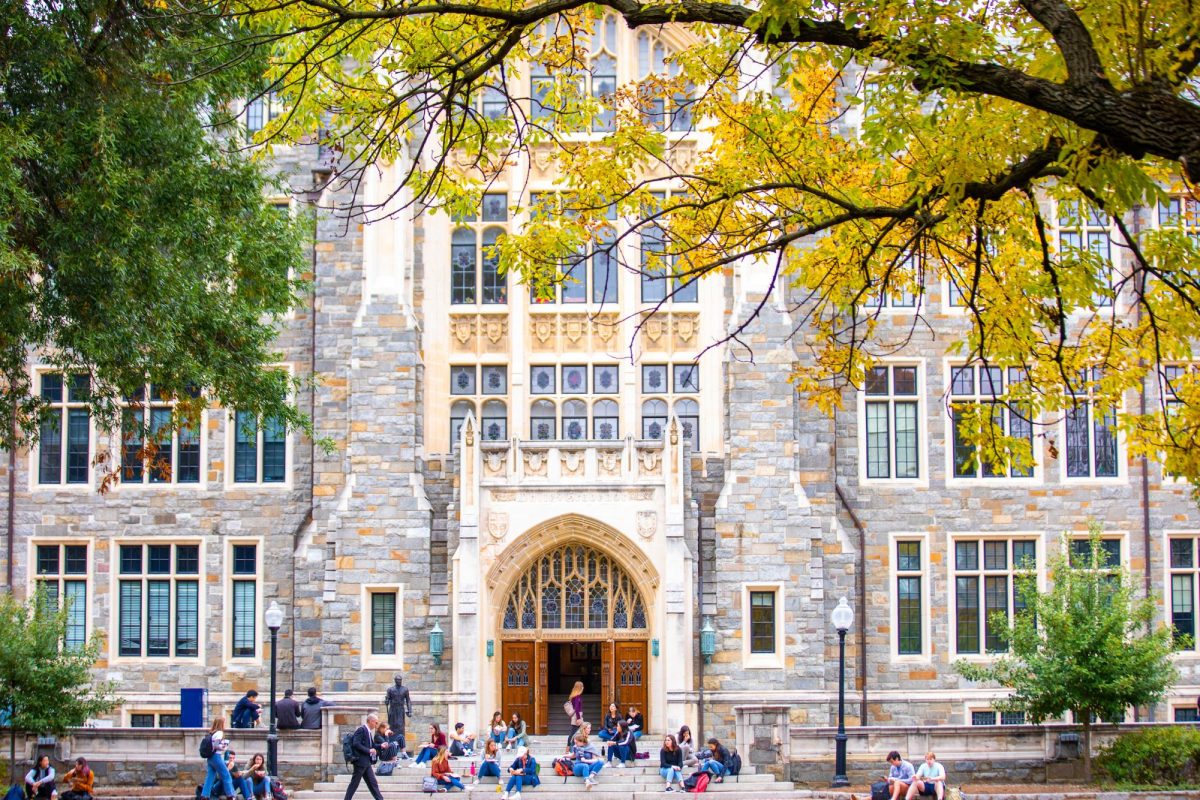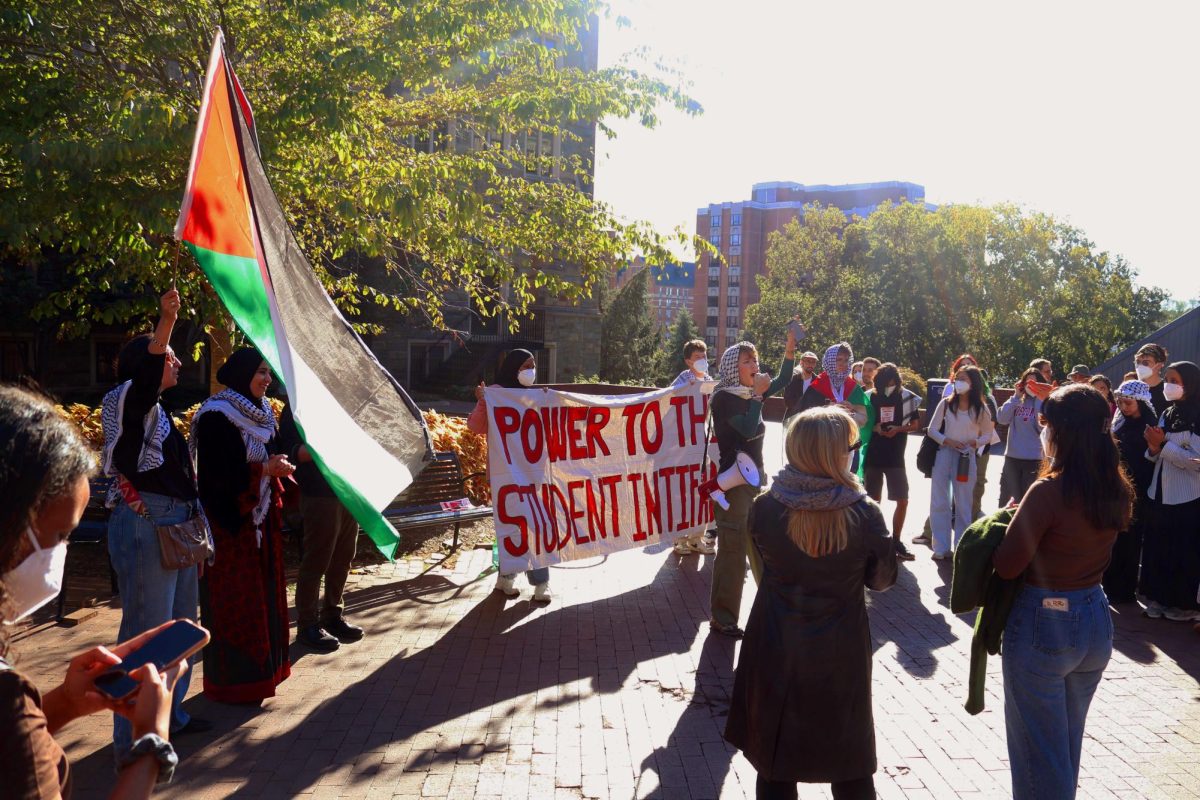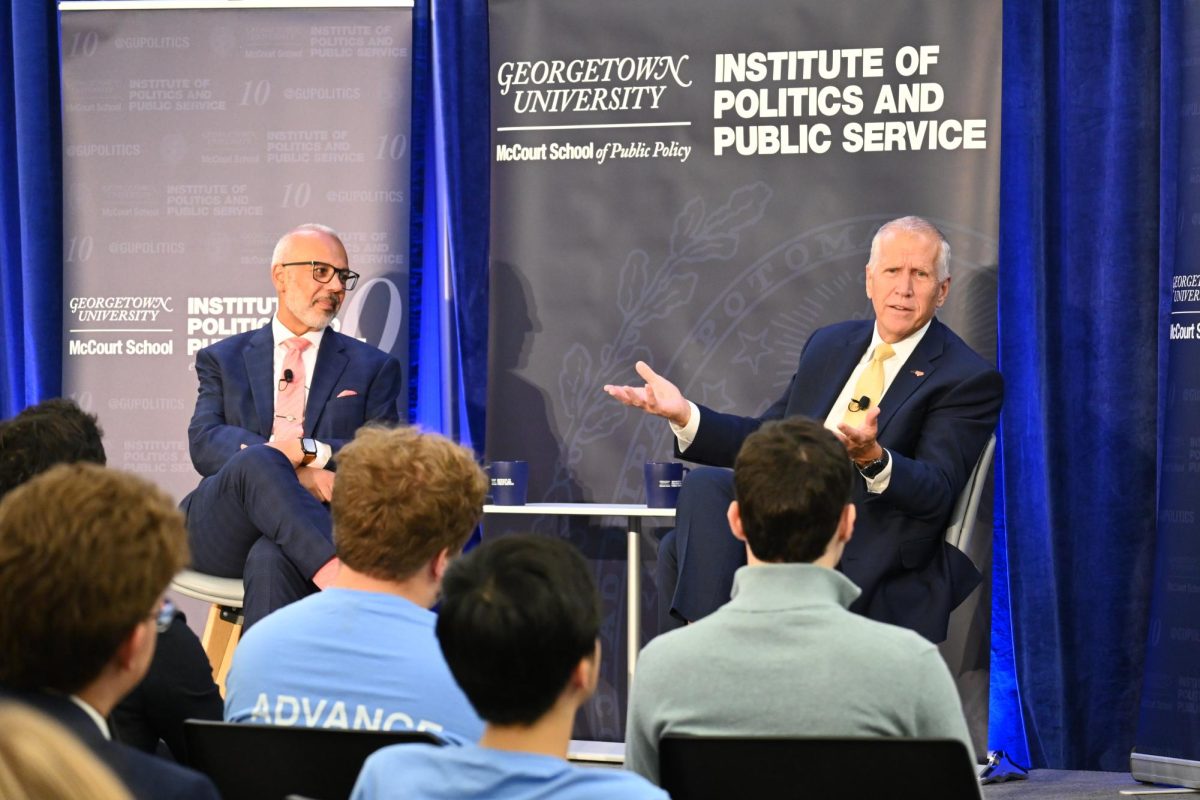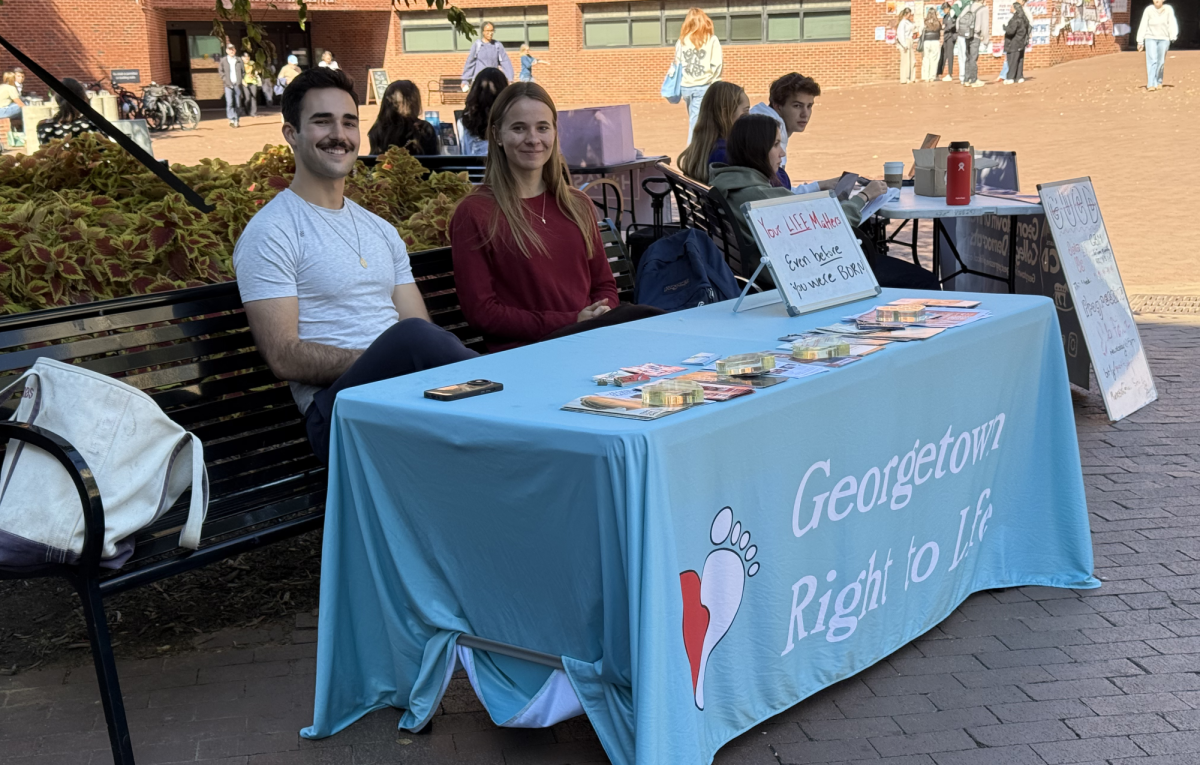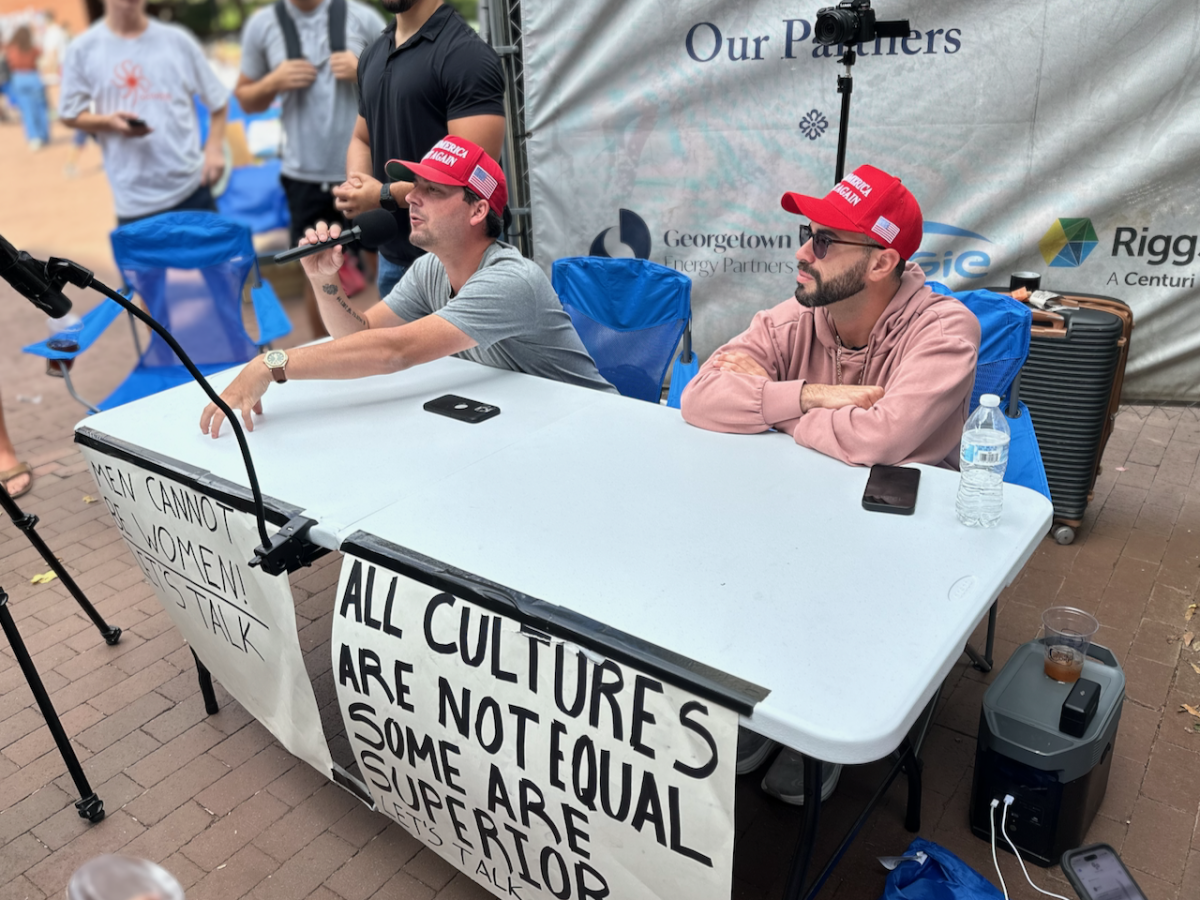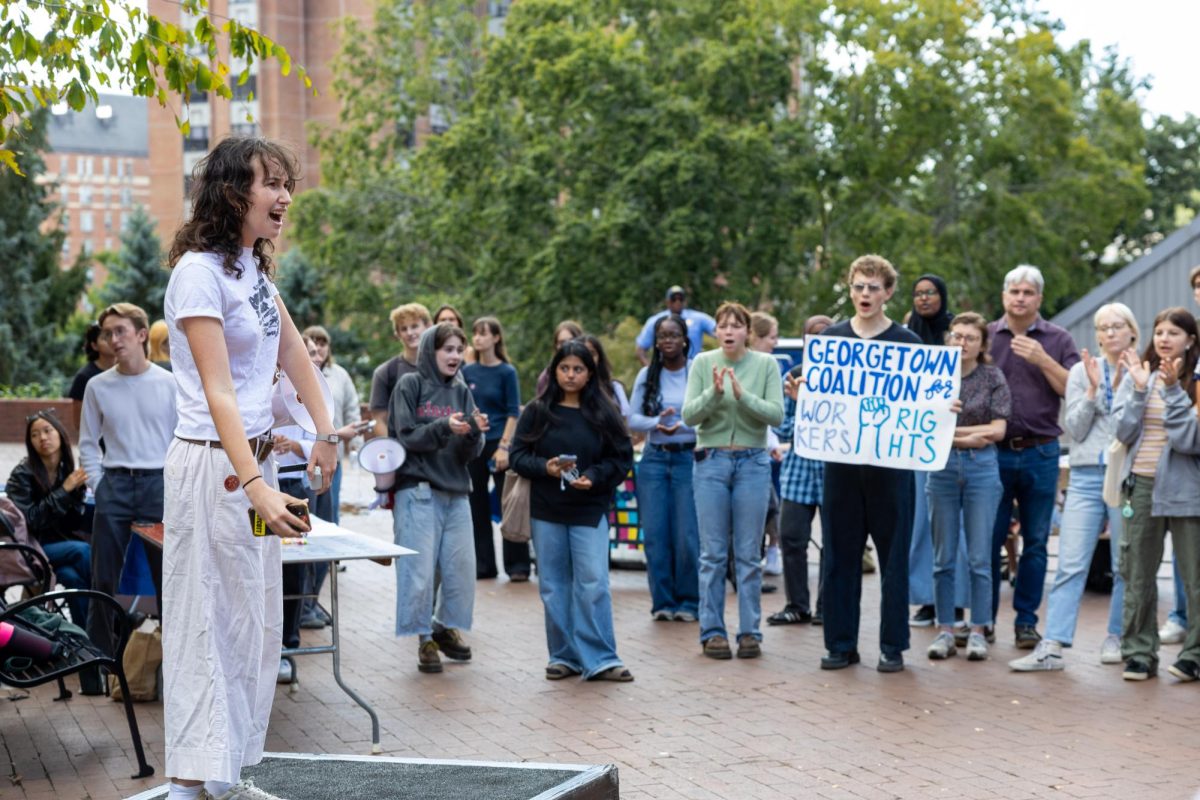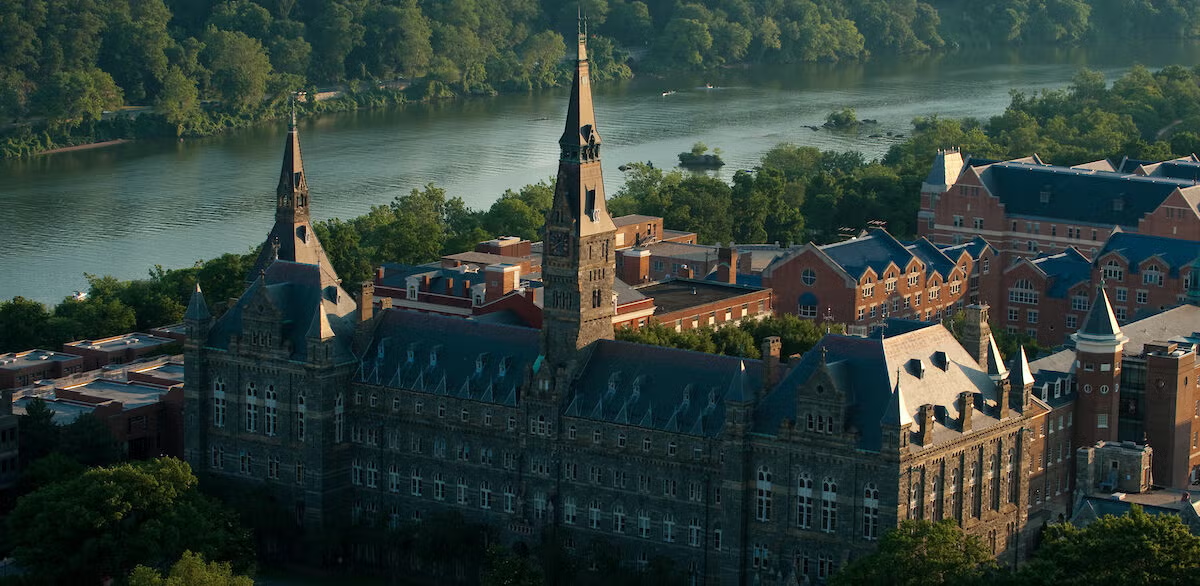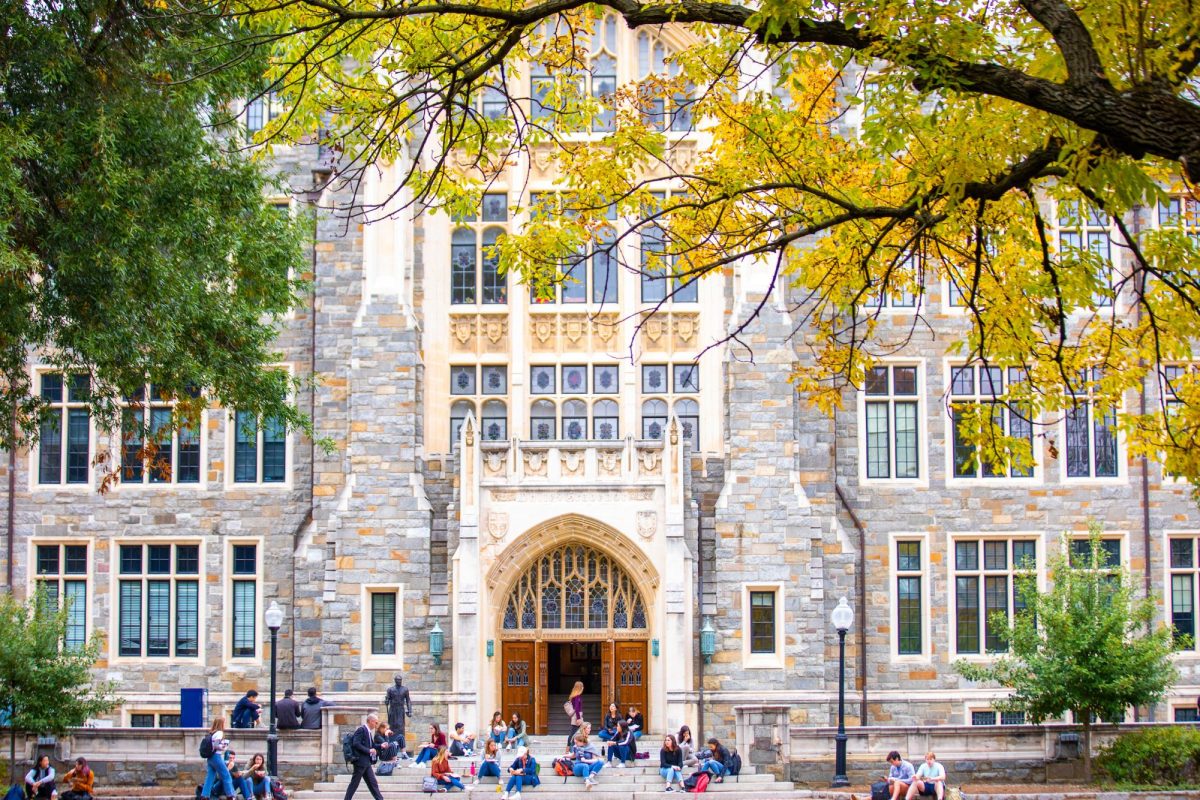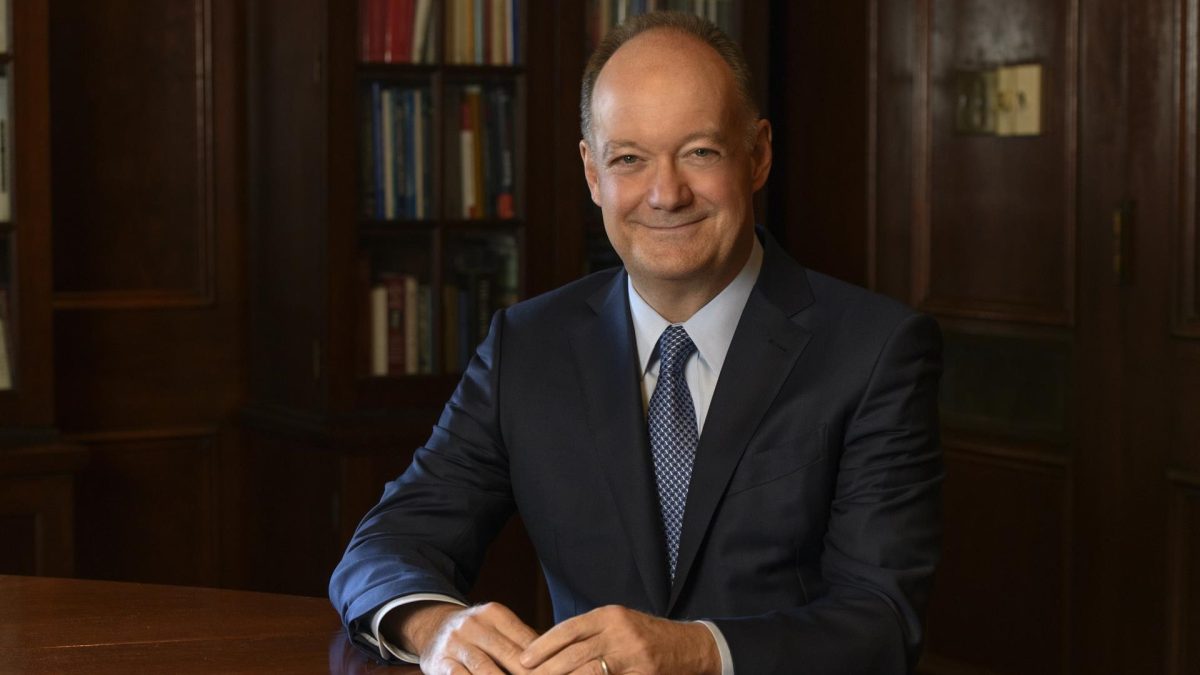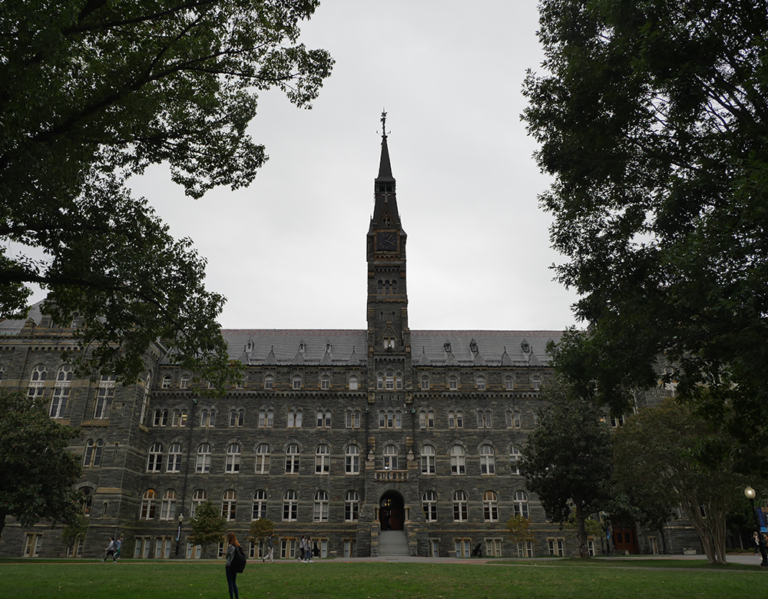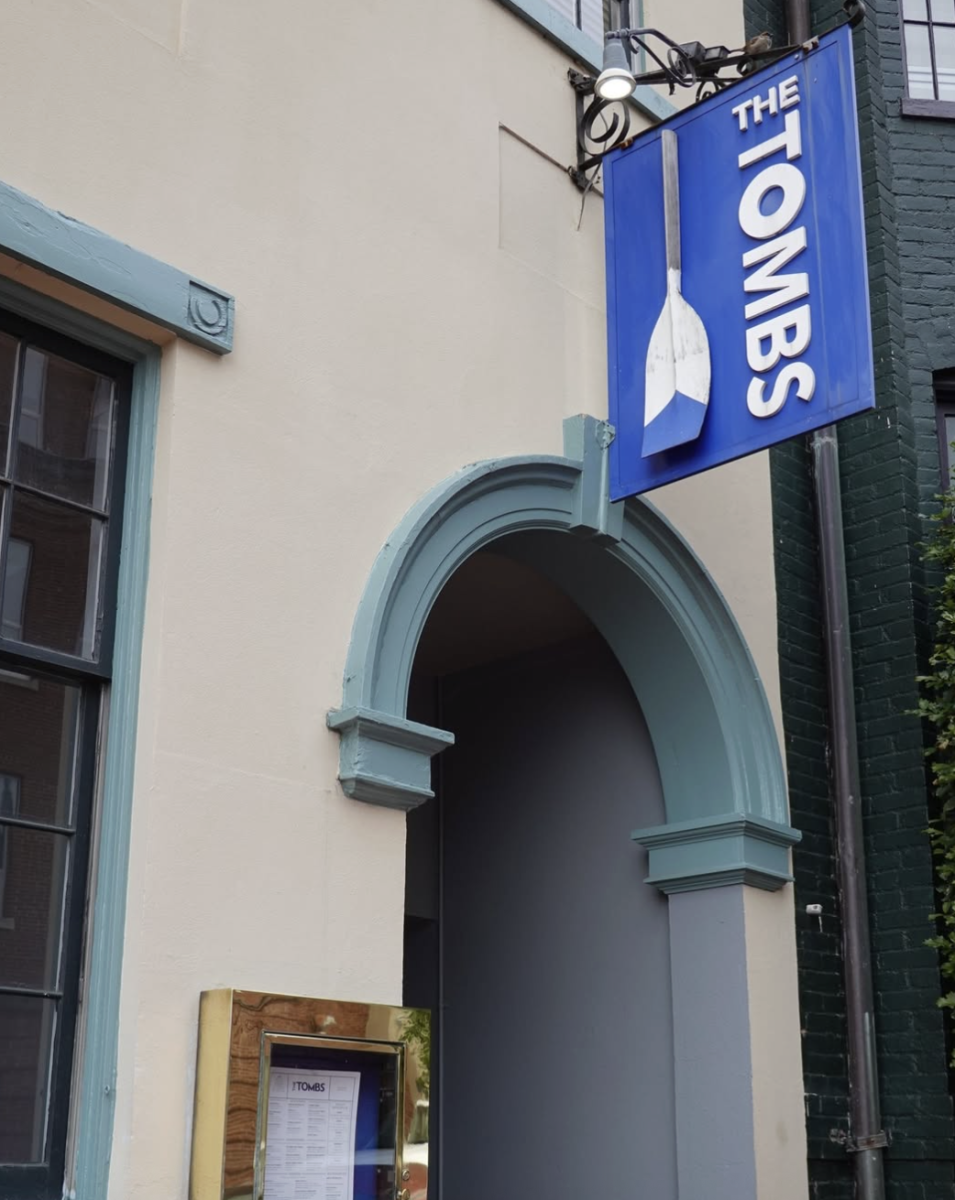In the week following the Sept. 10 assassination of conservative activist Charlie Kirk, Georgetown University students expressed fear, uncertainty and a renewed commitment to dialogue amid an increasing trend of political violence in the United States.
Kirk was fatally shot during a campus event at Utah Valley University while on the first stop of a tour for his political advocacy nonprofit, Turning Point USA. His assassination followed multiple major incidents of political violence in 2025: Minnesota State Speaker Melissa Hortman and her husband were killed in their home in June; an arsonist set fire to Pennsylvania Governor Josh Shapiro’s home in April; an Immigration and Customs Enforcement officer was shot and injured in July; and two Israeli Embassy staffers were killed outside the Capital Jewish Museum in May.
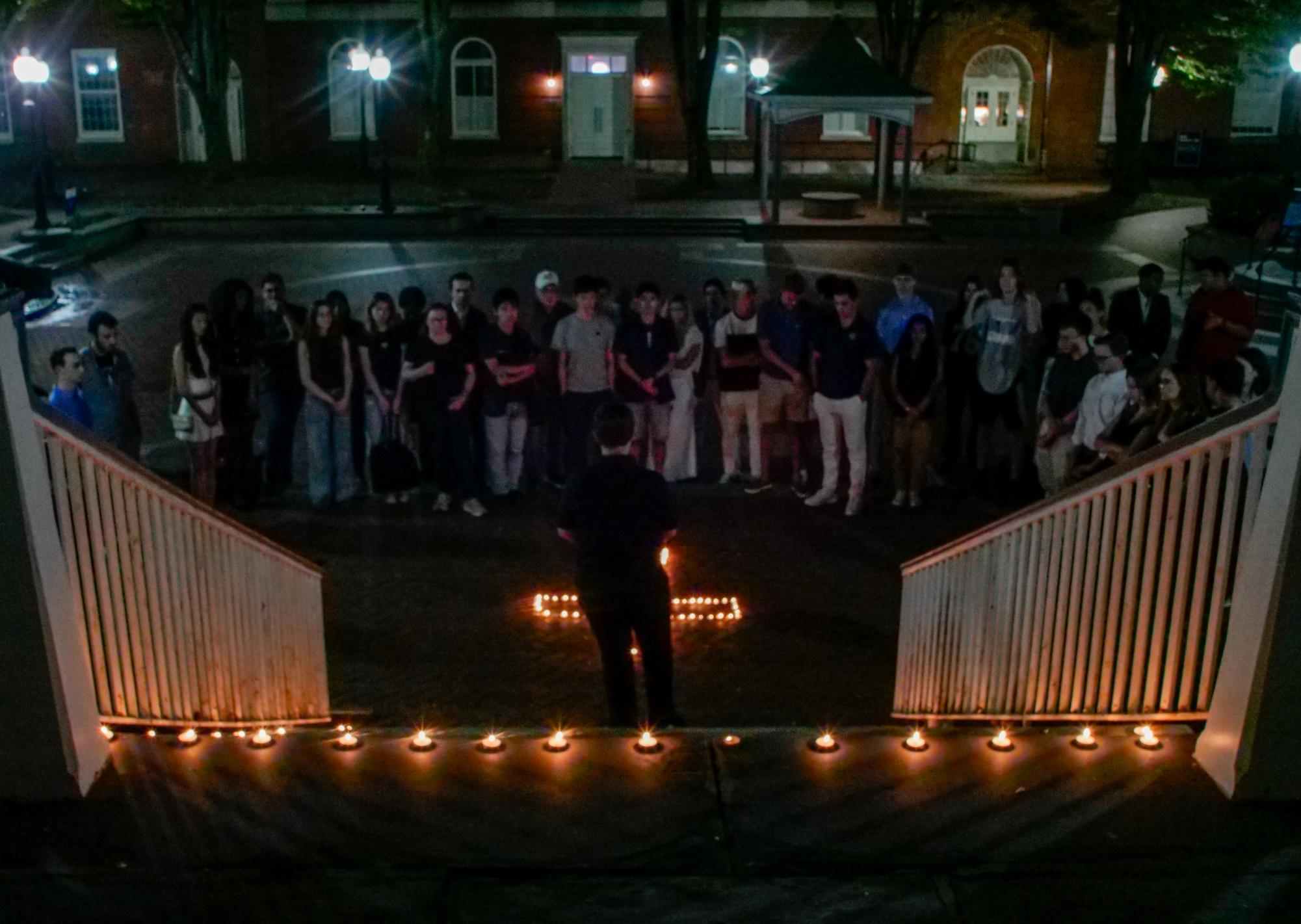
As experts become increasingly concerned about political violence across the United States, many Georgetown students have prioritized civil discourse while reckoning with growing hostility and partisanship in U.S. politics.
Knox Graham (SFS ’27), who met Kirk while interning at the 2024 Republican National Convention, said that even in a time of fear and violence, he is encouraged by civically minded students around him prepared for change.
“We are in a troubled period right now, but I don’t think that is something to be frightful about, because the times that we’re in call for good people, earnest people, enthusiastic people, public servants to stand up and to contribute to a better country than the one that we’ve been offered,” Graham told The Hoya.
“Even in fear, I still see hope, because I see people who are not resigned to what we’re in,” Graham added. “I see people who are eager and willing and desiring to change it.”
Katie Taffe (CAS ’27), who is from Minnesota and interested in pursuing a career in government, said that while she has felt safe at on-campus political events, Kirk’s assassination shocked her.
“All of the campus events with political speakers I’ve been to have felt incredibly safe,” Taffe wrote to The Hoya. “There have been events where people have expressed their disagreement with speakers in a peaceful manner, even if they were contentious. The shooting in Utah corrupted the nature of free speech, and even though I still feel safe on campus, it definitely will be on my mind when I attend events here at Georgetown in the future.”
Georgetown student organizations and academic groups regularly host speakers in Red Square, Gaston Hall and other venues, some of which have invited protest or condemnation. In 2020, students walked out in protest during an event with Kirk and Eric Trump (MSB ’06) hosted by Georgetown University College Republicans (GUCR).
Georgetown recently received an “F” grade for free speech from the Foundation for Individual Rights and Expression, a nonprofit tracking free speech nationwide, though it jumped 111 spots among universities nationwide overall.
Maria Halter (CAS ’27) said she feels she needs to continue speaking out on political issues in the face of increasing division.
“I’m personally not doing much different, but I know people who are and who are taking precautions to prevent harm from those who may spark political violence,” Halter wrote to The Hoya. “I feel as though I come from a place of privilege to not have to hide as much, but I will continue to speak out and uplift others’ voices for those who feel targeted from such violence.”
Though grappling with the violence, students such as Taffe reaffirmed their commitment to political advocacy.
Taffe said that, even in the face of escalating political violence, standing down would allow the perpetrators — such as Vance Boelter, charged with murdering the Hortmans — to win.
“I think that what people like Vance Boelter want to happen in the face of these events is for people to be afraid and for people to not want to go into government work and to say, ‘You know what? That’s not for me, and I don’t want to risk my personal safety over the greater good and helping other people,’” Taffe said.
“I don’t think that we would be honoring the legacy of Speaker Hortman and other people who have suffered political violence by just shutting down and not fighting for the things that we care about and continuing to pursue our passions and helping other people,” she added.
As students consider involvement with politics, Minnesota State Representative Mike Freiberg (COL ’99), who had an extensive professional relationship with Hortman, said he hopes Hortman’s assassination will lead to increased protections for lawmakers and government officials.
“Hopefully, if there’s any students out there considering public service in this regard, it’ll be safer going forward than it has been,” Freiberg told The Hoya in June.
Alyvia Bailey (CAS ’26), who works in conservative politics, said growing political violence nationwide has only reinforced her commitment to dialogue.
“The one thing that has always been a priority to me is bipartisanship,” Bailey wrote to The Hoya. “The reason I came to Georgetown is because I knew I would be surrounded by ideas that differed from mine, consistently challenging me to evaluate my own beliefs. There is no right answer in politics, but there is a right way, through respectful discussion and inquiry with others.”
Ellie Heller (CAS ’27), who is originally from Minnesota, said political violence makes it even more important for politically passionate students to pursue government.
“People understanding the risks that polarization poses to our democracy and America — those are the types of people that we really need to occupy roles of leadership and public service,” Heller told The Hoya. “And so I think that using that as a rallying cry and a reason to only study harder and get more involved is super important.”
Bailey said she hopes the current era of political violence will inspire U.S. leaders and citizens to stymie the tide of political violence.
“I really hope that this is the low point, and from here on out, I really hope that from both sides of the aisle, we can turn our messaging towards unity rather than division,” Bailey said. “I think right now, more than ever, we have to do that, or it’s only going to get worse.”



